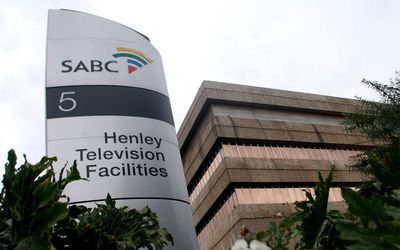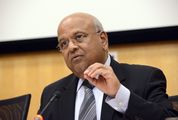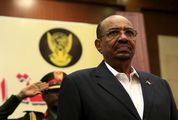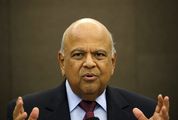THE Competition Tribunal has dealt a blow to opponents of the controversial multimillion-rand content deal between MultiChoice and the South African Broadcasting Corporation (SABC), ruling that the transaction does not constitute a merger.
Last year, a consortium comprising media group Caxton, lobby group Save Our SABC Coalition and Media Monitoring Africa argued before the Competition Tribunal that MultiChoice and the SABC must be compelled to classify their content deal as a merger.
Three years ago, the SABC and MultiChoice signed a five-year, R533m deal giving the pay-TV provider the right to air two of the public broadcaster’s channels.
The channels — a 24-hour news channel and an entertainment channel showing old archived programmes — are already on DStv.
As part of the deal, the SABC decided not to allow any of its channels to be encrypted during the five-year term. The SABC initially wanted encryption on set-top boxes that will be used to convert analogue signals to digital. But it has since changed its position.
The tribunal found the commercial and master channel deal, entered into in July 2013, "did not give rise to a notifiable merger in terms of the Competition Act".
It found that Caxton’s case was weakened as it progressed because its complaint was based on the interpretation of the leaked original agreement that stated that the SABC had given up the rights to broadcast its valuable archive to its own viewers.
The original agreement was amended three times, changing the initial constraints regarding the archived material, according to the tribunal. The amended contract also diluted certain rights that the original agreement conferred on MultiChoice, the tribunal said.
"It was a major part of Caxton’s case that the SABC had given up the rights to broadcast its valuable archive to its own viewers, not to mention precluding itself from licensing it to other broadcasters," the tribunal stated.
The tribunal found that the entire archive was not barred from use by the SABC but merely the portion that related to the entertainment channel, and was then still subject to the minimum rebroadcasting delays.
The Caxton-led consortium also argued that since the SABC channels would not be encrypted this meant that MultiChoice would have control of the business.
The tribunal found that the terms of the agreement were "too limited in scope to justify a conclusion that MultiChoice was assuming control over the SABC’s business".

Picture: SUNDAY TIMES
THE Competition Tribunal has dealt a blow to opponents of the controversial multimillion-rand content deal between MultiChoice and the South African Broadcasting Corporation (SABC), ruling that the transaction does not constitute a merger.
Last year, a consortium comprising media group Caxton, lobby group Save Our SABC Coalition and Media Monitoring Africa argued before the Competition Tribunal that MultiChoice and the SABC must be compelled to classify their content deal as a merger.
Three years ago, the SABC and MultiChoice signed a five-year, R533m deal giving the pay-TV provider the right to air two of the public broadcaster’s channels.
The channels — a 24-hour news channel and an entertainment channel showing old archived programmes — are already on DStv.
As part of the deal, the SABC decided not to allow any of its channels to be encrypted during the five-year term. The SABC initially wanted encryption on set-top boxes that will be used to convert analogue signals to digital. But it has since changed its position.
The tribunal found the commercial and master channel deal, entered into in July 2013, "did not give rise to a notifiable merger in terms of the Competition Act".
It found that Caxton’s case was weakened as it progressed because its complaint was based on the interpretation of the leaked original agreement that stated that the SABC had given up the rights to broadcast its valuable archive to its own viewers.
The original agreement was amended three times, changing the initial constraints regarding the archived material, according to the tribunal. The amended contract also diluted certain rights that the original agreement conferred on MultiChoice, the tribunal said.
"It was a major part of Caxton’s case that the SABC had given up the rights to broadcast its valuable archive to its own viewers, not to mention precluding itself from licensing it to other broadcasters," the tribunal stated.
The tribunal found that the entire archive was not barred from use by the SABC but merely the portion that related to the entertainment channel, and was then still subject to the minimum rebroadcasting delays.
The Caxton-led consortium also argued that since the SABC channels would not be encrypted this meant that MultiChoice would have control of the business.
The tribunal found that the terms of the agreement were "too limited in scope to justify a conclusion that MultiChoice was assuming control over the SABC’s business".





















Change: -0.42%
Change: -0.35%
Change: -0.17%
Change: 0.14%
Change: -2.58%
Data supplied by Profile Data
Change: -0.56%
Change: 0.13%
Change: -0.42%
Change: 0.00%
Change: -0.18%
Data supplied by Profile Data
Change: 0.20%
Change: 0.04%
Change: 0.10%
Change: -0.07%
Change: 0.12%
Data supplied by Profile Data
Change: -0.06%
Change: 0.42%
Change: 0.00%
Change: -0.35%
Change: 0.59%
Data supplied by Profile Data